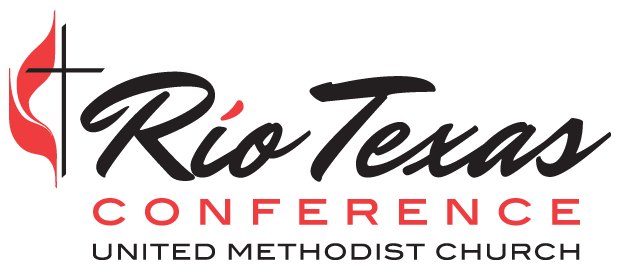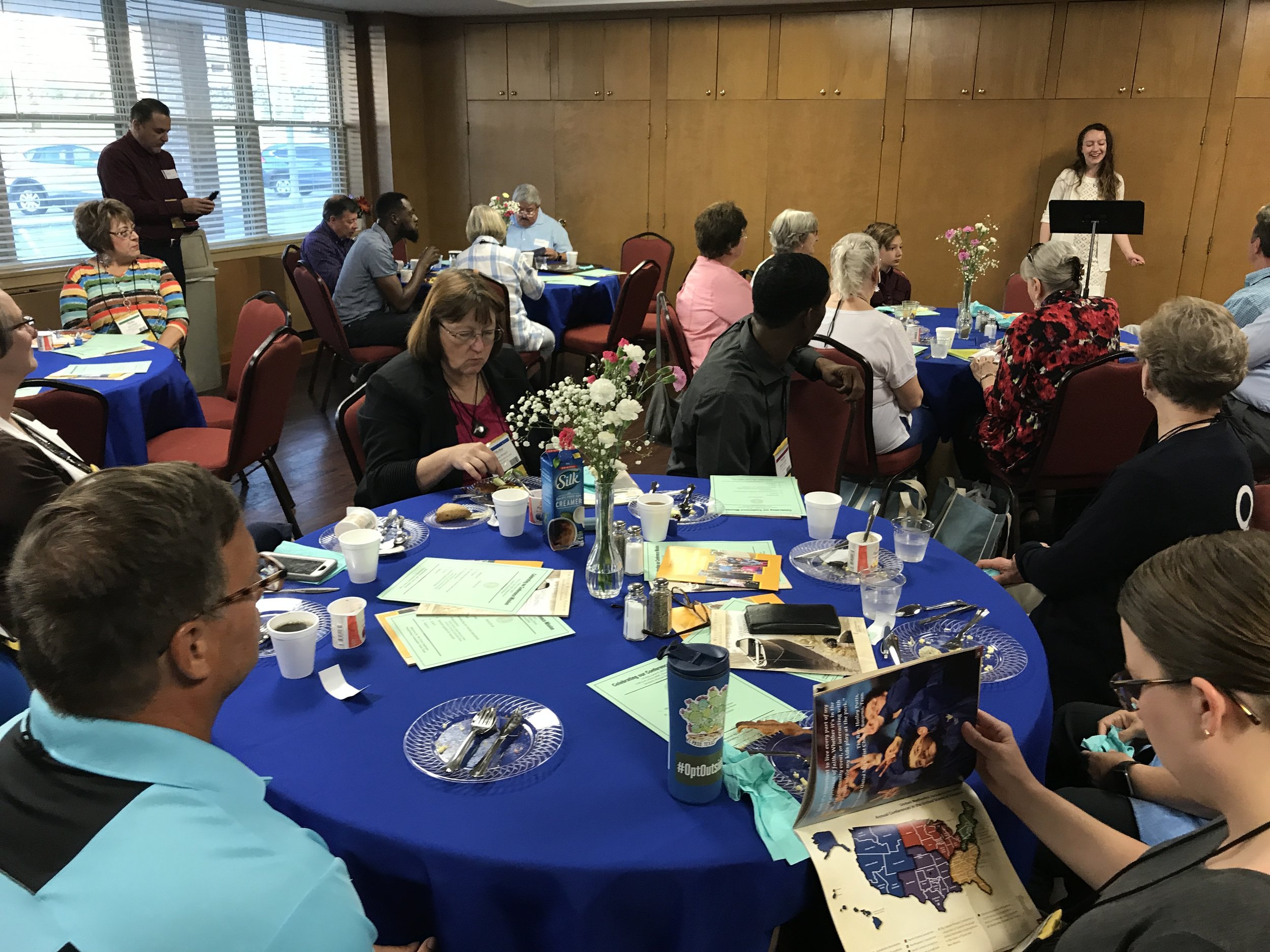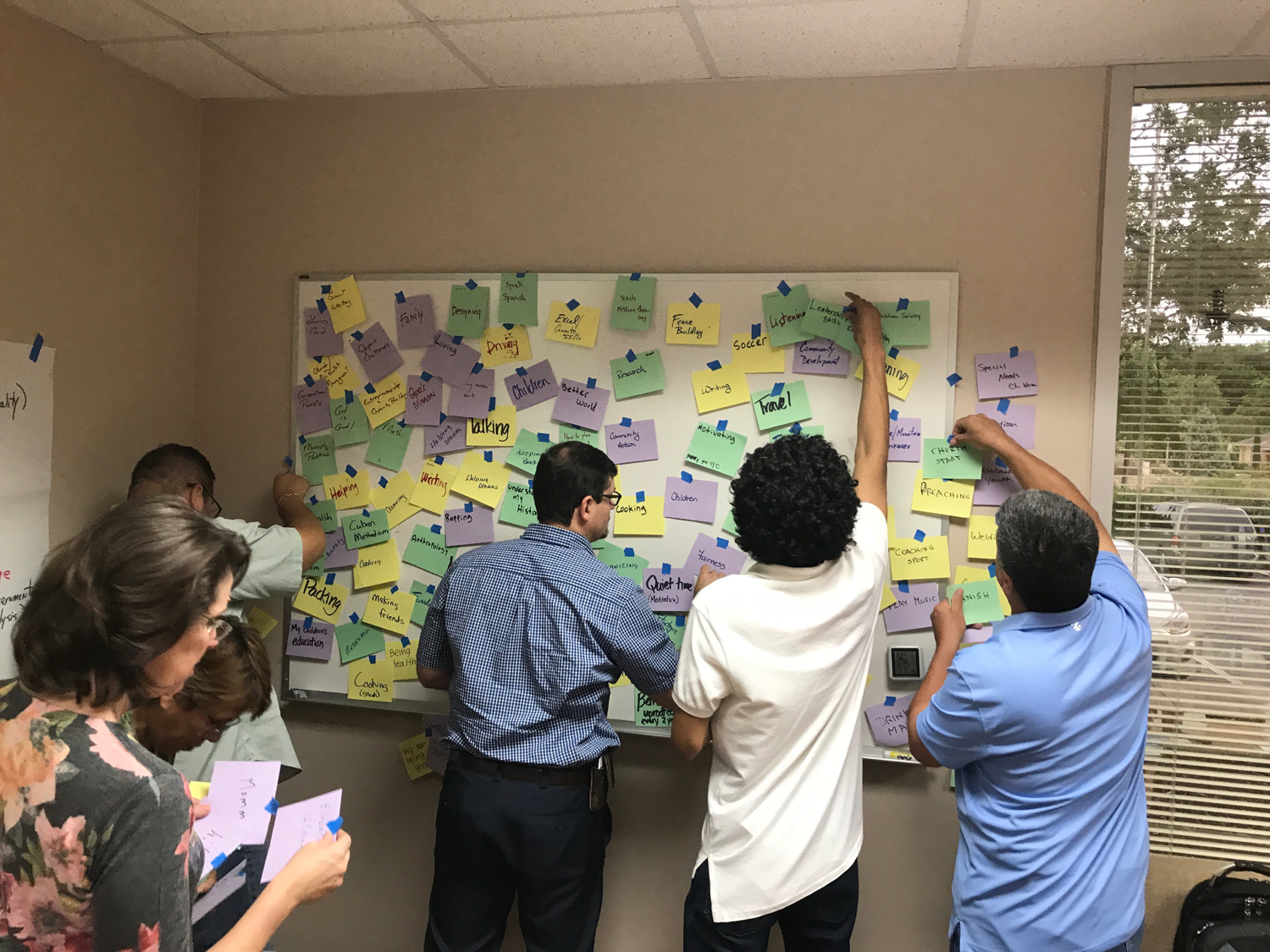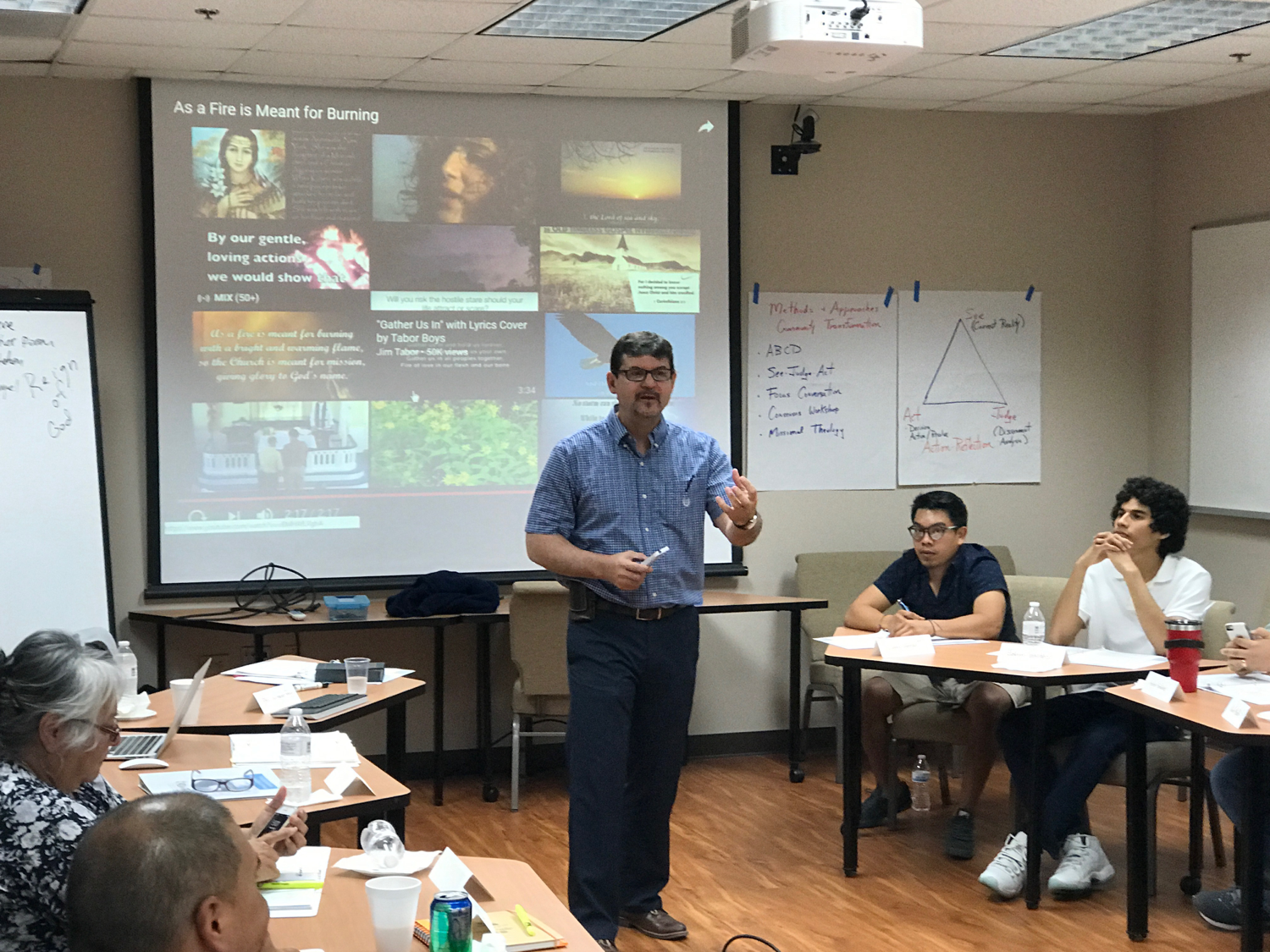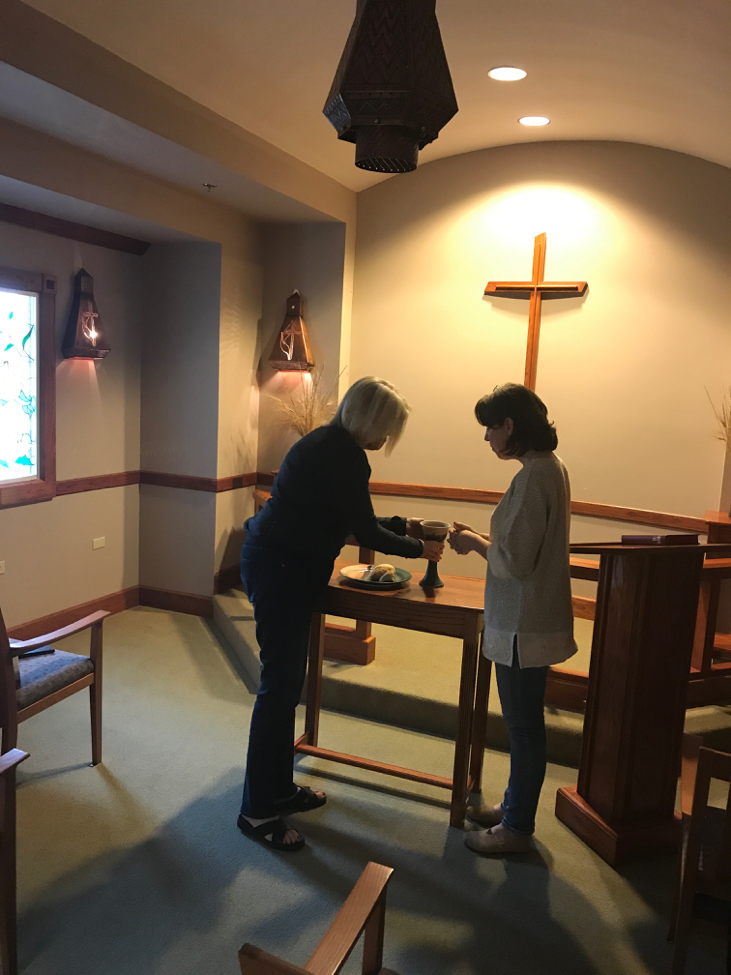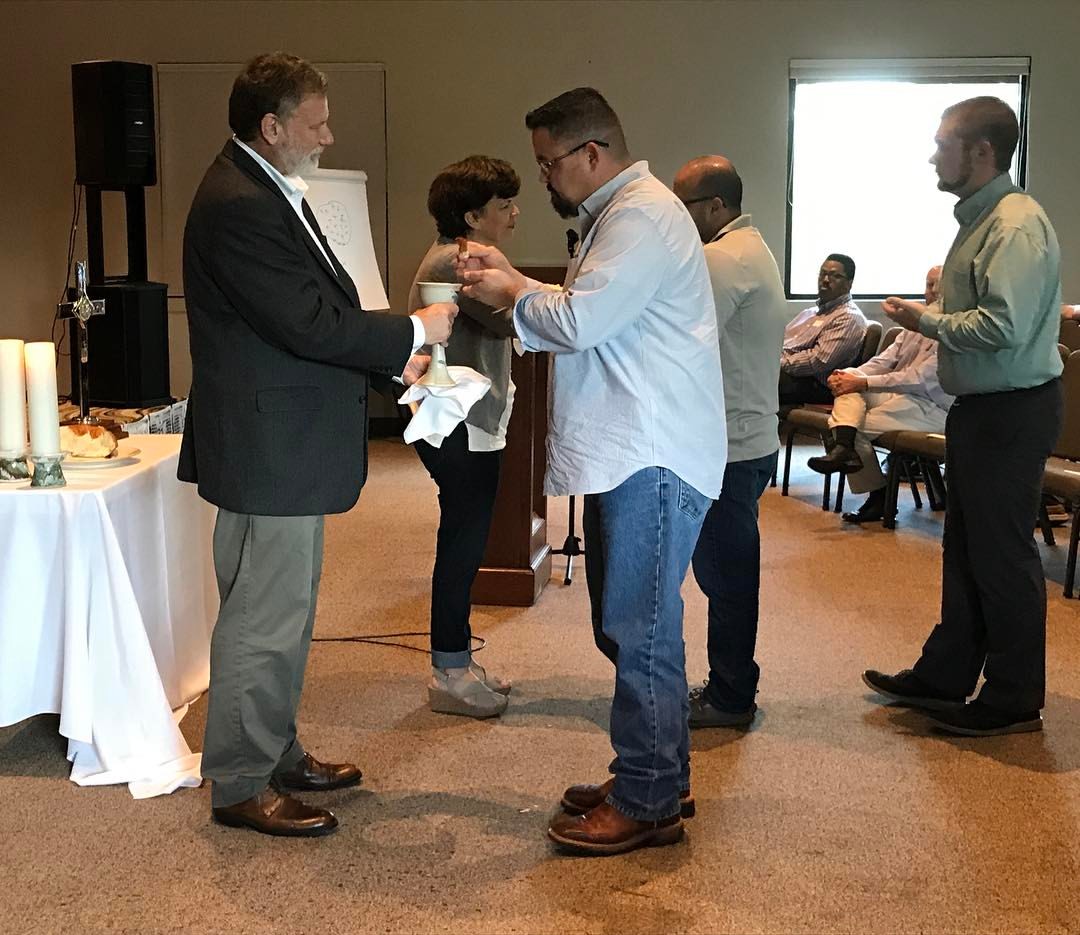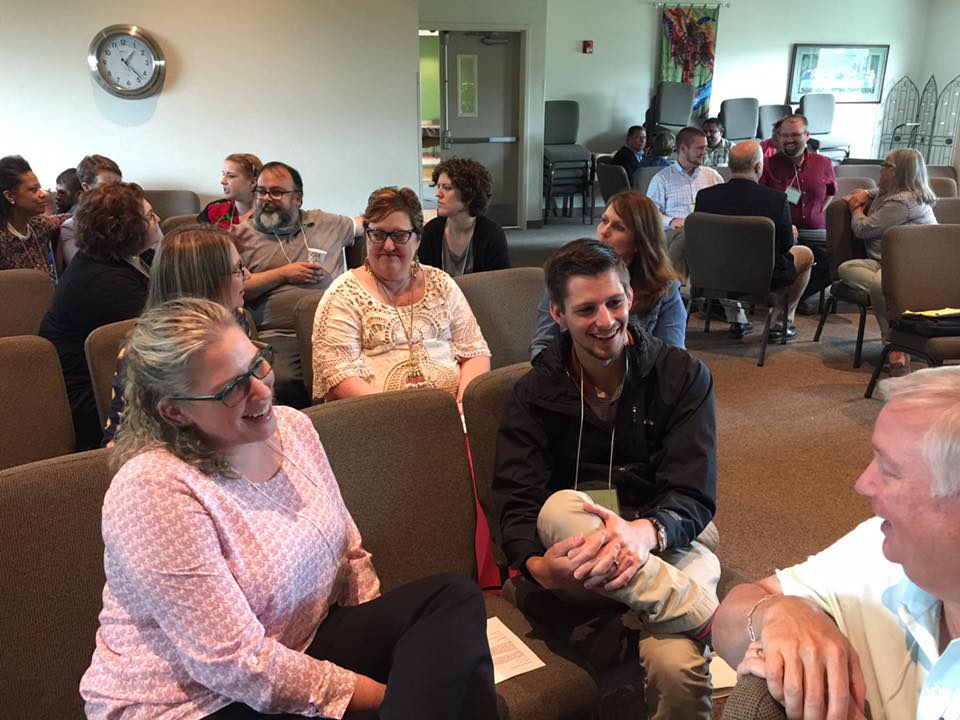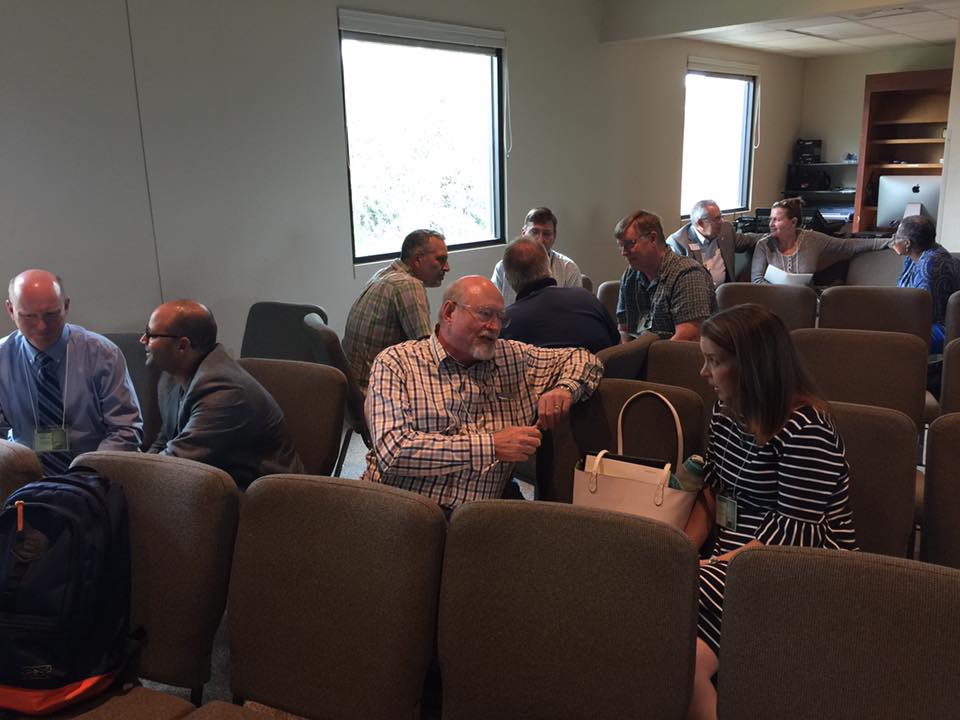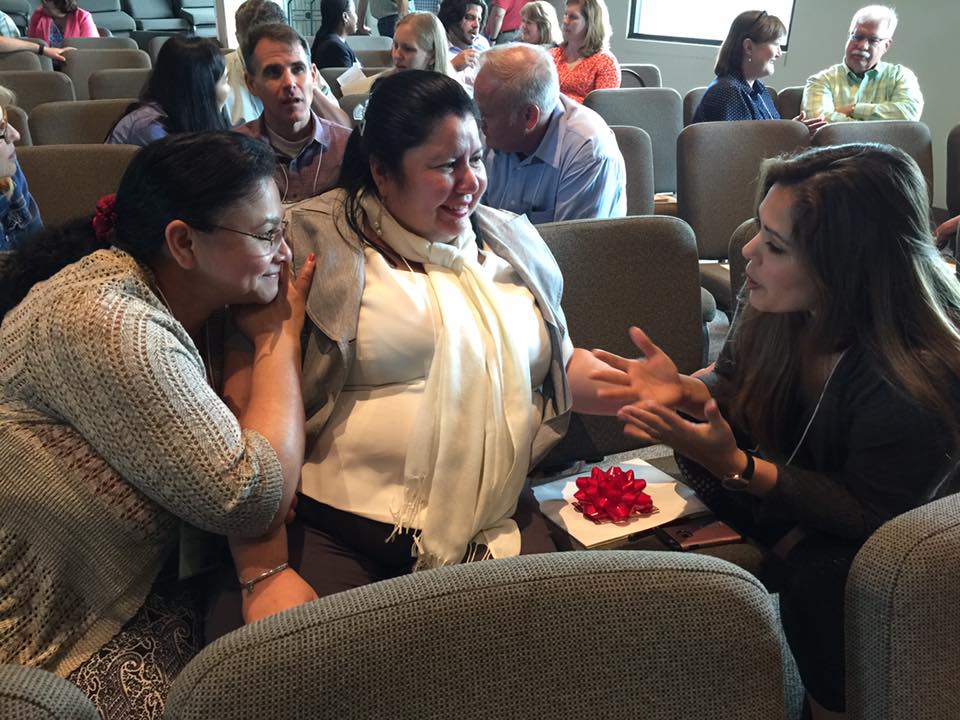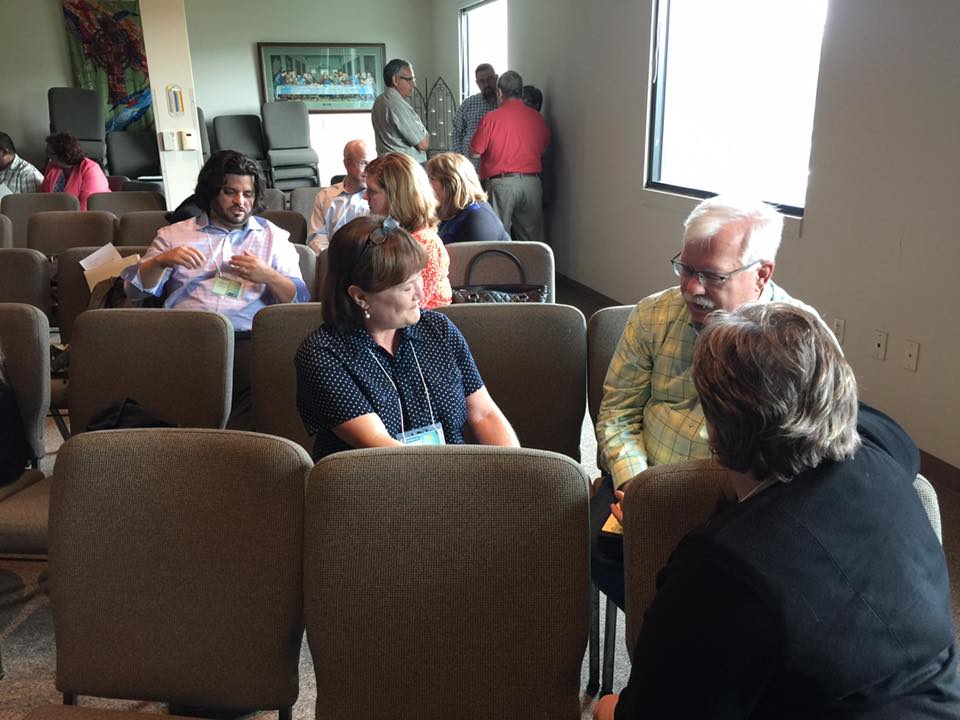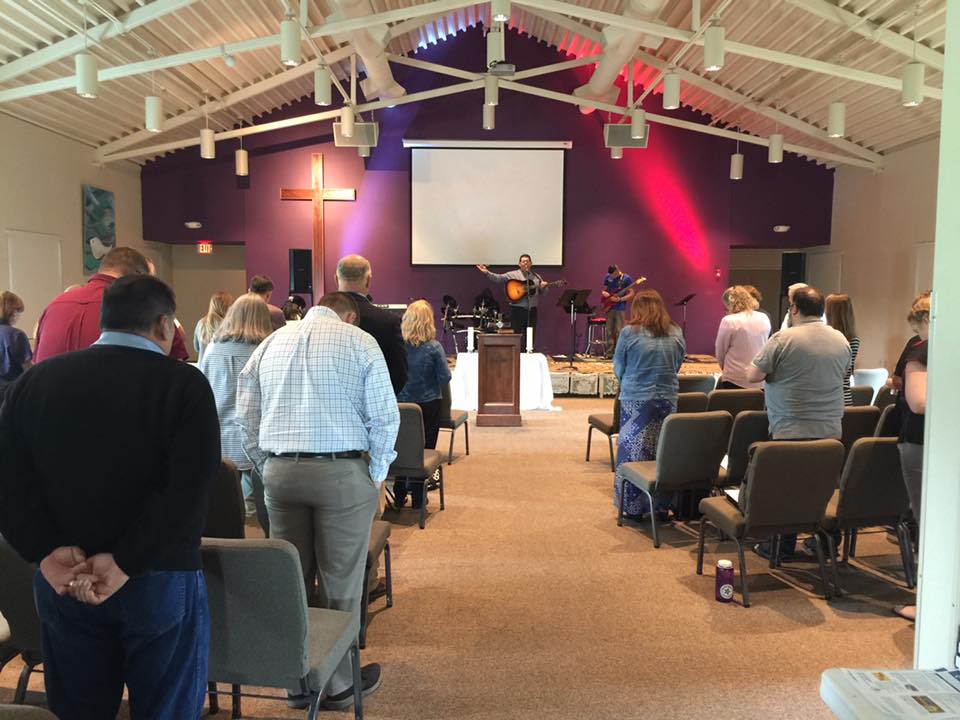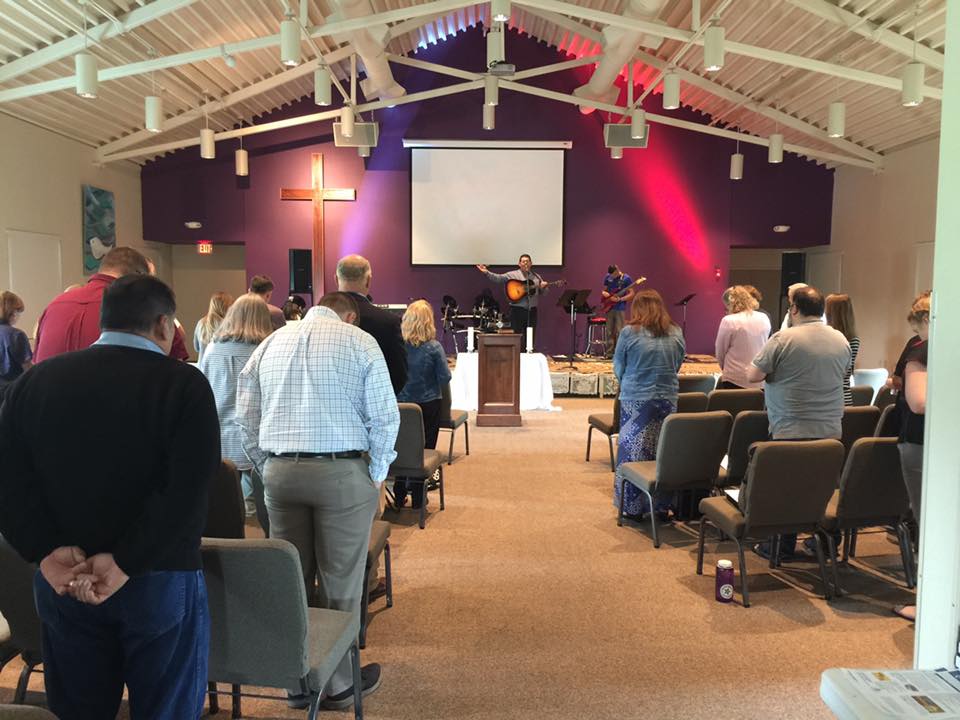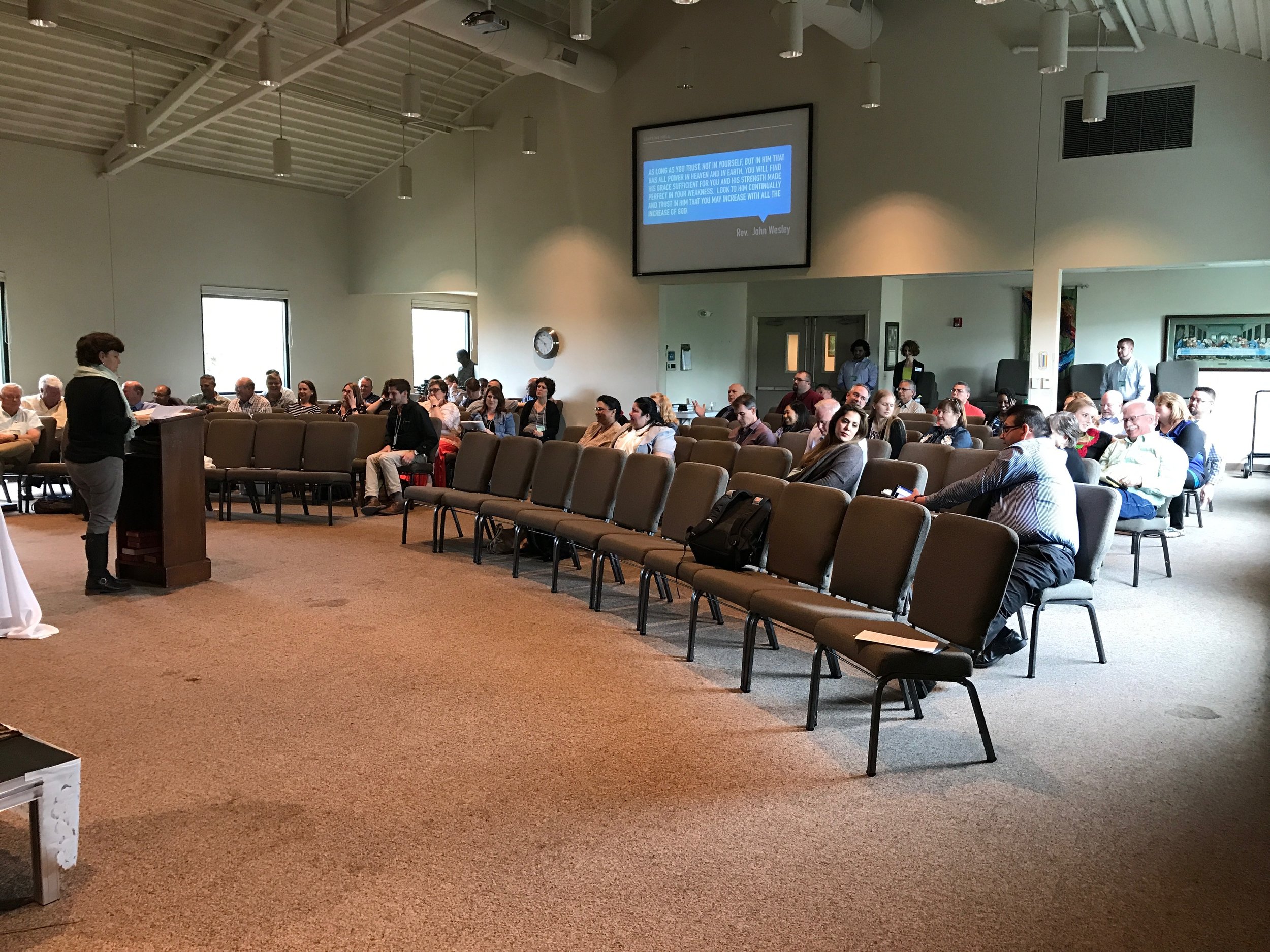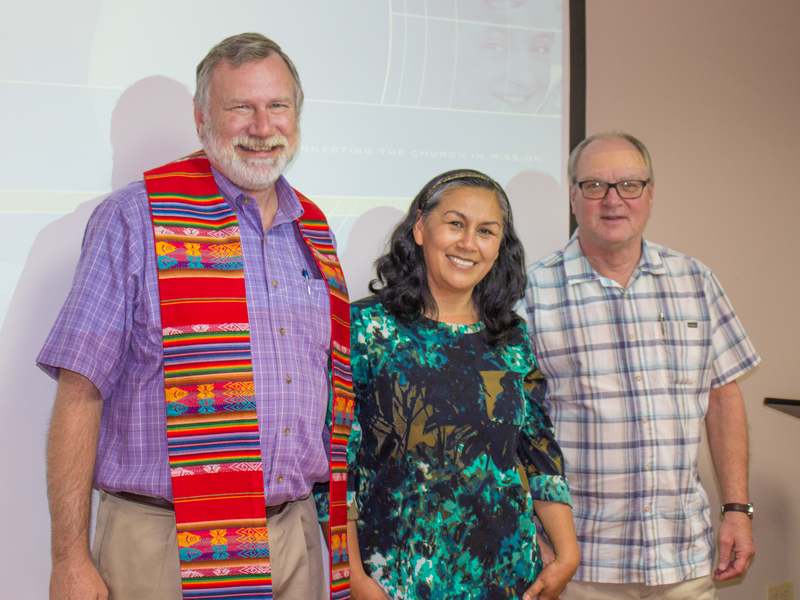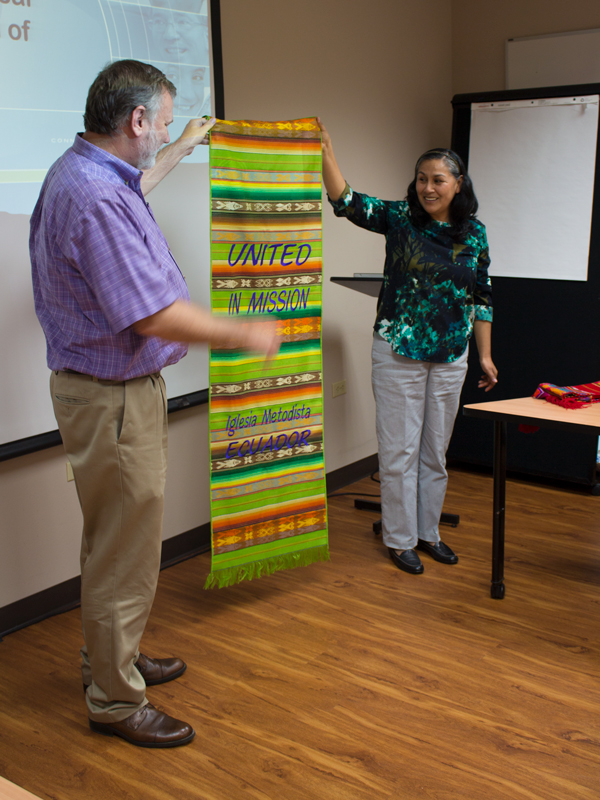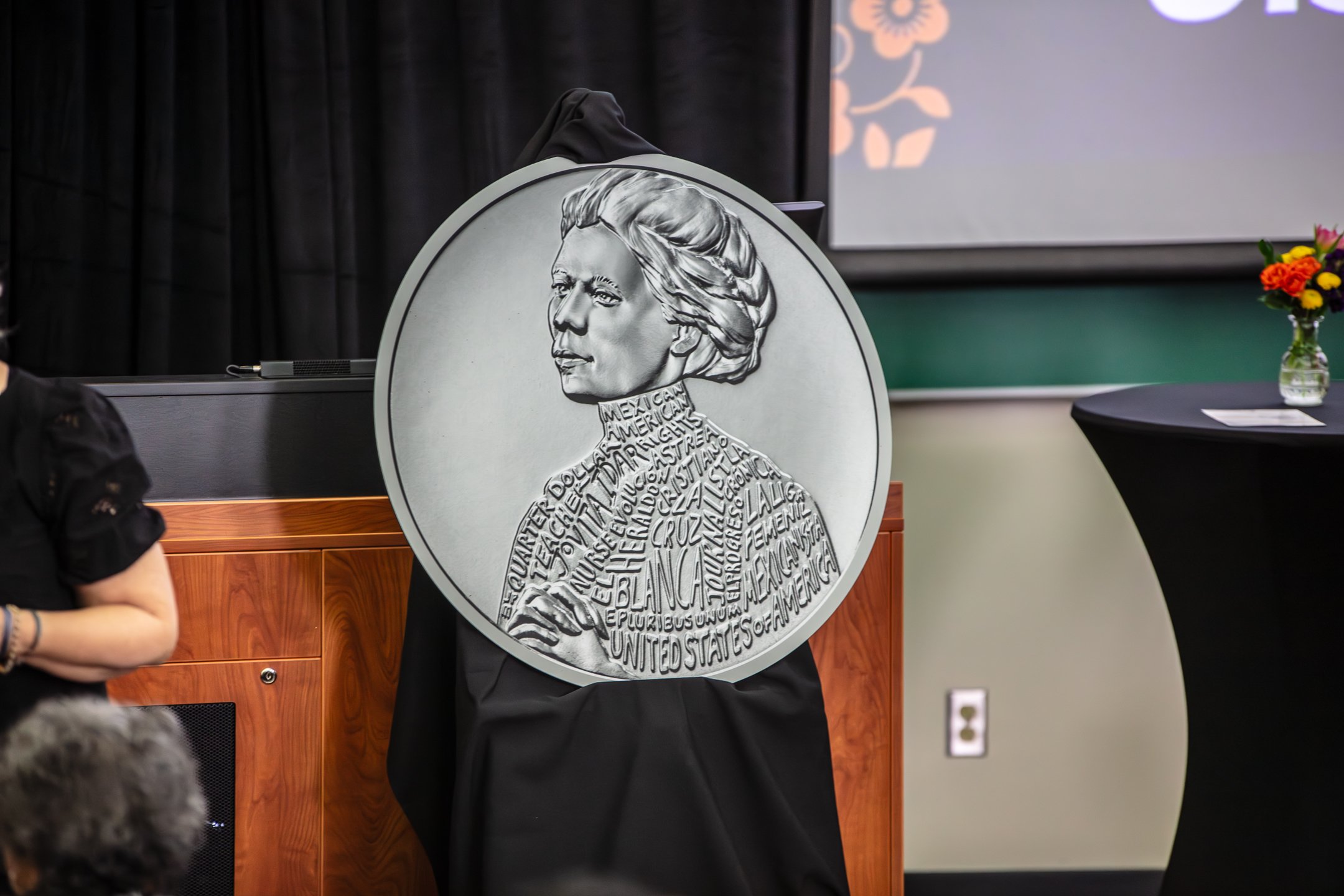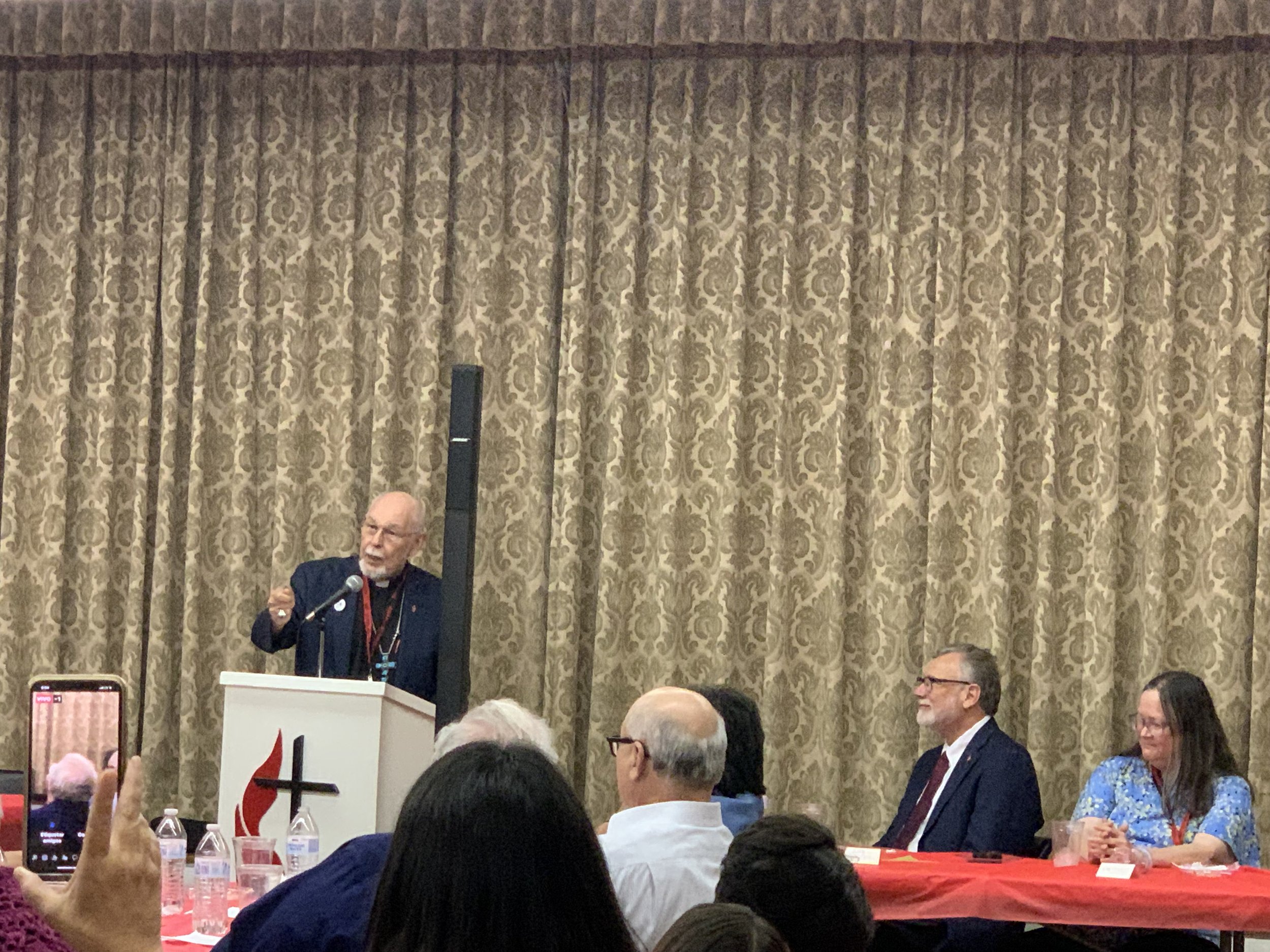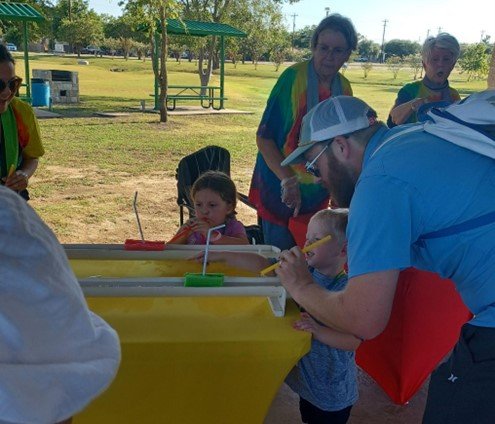Good morning, everyone. Thank you all for inviting me here to share this morning. My name is Audra Hudson. I am a Global Mission Fellow US-2 serving on behalf of the United Methodist Church General Board of Global Ministries in Tacoma, Washington. There I worked as a community organizer with Tacoma Community House, a Methodist-founded organization that for 107 years has worked alongside immigrant and refugee communities in Western Washington. I thank you all for joining me this morning to learn about supporting immigrants and refugees.
At Tacoma Community House, I work in our Development and Communications department—the arm of the organization that is charged with communicating with folks about the work we do as an organization and mobilizing communities to stand in solidarity with our immigrant and refugee neighbors. Fundamentally, this department has the privilege of sharing stories and statistics that help our potential supporters answer the question: “Why support immigrants and refugees?” I thought I’d begin today with sharing the ways that we often answer this question.
By the merits of our front-line staff and research communities across the globe, we’re able to share some incredible narratives and facts that testify to the truth that immigrants and refugees are blessings to our communities rather than burdens.
We’re able to share the economic merits of welcoming immigrants and refugees; that foreign-born folks contribute 140 billion dollars annually to the US economy in the form of taxes. The Texas immigrant community contributes the largest share of that sum. Immigrants and refugees enrich and strengthen our communities as they are more likely to start small businesses than US-born folks. Immigrants and refugees also commit crimes at lower rates. These figures help to reorient perceptions cultivated by misinformation, fear, and racist tropes that wrongly assert that our foreign-born neighbors are lazy, a drain on our economy, and criminal.
These facts—and many others—are certainly powerful, but don’t touch our emotional selves. A coworker of mine—who often measures the success of an appeal by whether she has goosebumps—would say that facts and statistics don’t quite do it for her. So, when answering that question of “why support immigrants and refugees,” we share stories of the lived experiences of our clients—goose bump-inducing narratives, if you will, that highlight the depth of struggle immigrants and refugees experience in their journeys to the US, the joys of finding employment, learning English, or obtaining a green card, and the challenges that these communities face in the time between initial journeys and these successes.
We humanize these facts and figures with stories of our real clients, like Aziz. He served as an interpreter for US armed forces in Afghanistan. He was threatened by the Taliban, forcing him and his wife, Maryam, to flee to the United States. We share his story to illustrate our immigration system’s need for reforms because it took months for Aziz to obtain a US visa, despite his recognized relationship as an ally to the US and his family being in immediate danger. We happily share about how he has resettled in the US with success— Aziz and Maryam are employed, own a house, and are now have two, young, US citizen children.
We share these stories to remind folks that our humanity is shared—that we must look out for one another, lending hands, hearts, and resources to seek justice alongside our immigrant and refugee neighbors. For many folks, this recognition that immigrants and refugees contribute to our nation, states, and neighborhoods in tangible and relational ways is an adequate answer to the question of why support immigrant and refugee communities. Usually, this is where the discussion ends.
My job as a Global Mission Fellow at Tacoma Community House is to push a bit further: to ask people of faith to lean more deeply into that question. I’m not asking you to forsake research or stories that pull at our heart strings, but to consider how seeking immigrant and refugee justice is also tied up in our identity as Christians. I’m asking you to consider how the call to welcome the stranger is both deeply traditional and theological. This is where I’d like to steer our conversation this morning: examining the teachings and traditions of our faith that illuminate both why and how we are called as followers of Christ to stand in solidarity with our foreign-born neighbors.
The answer to why we are called to walk alongside immigrants and refugees is first woven into the Jewish tradition that underpins Christian faith. The Hebrew Bible—our Old Testament—recounts God’s command to the Israelites to practice radical hospitality, welcoming the sojourner, the foreigner, and stranger into their communities with dignity and justice. They were to do this not out of mercy, but out of remembrance and empathy as they too were once “strangers in a foreign land,” living as exiles in Egypt. The Israelites were to recall their own harsh treatment as Egyptian slaves and respond not with vengeance or anger, but with love as intimate and generous that offered to family.
This tradition of offering deep hospitality is reinforced in the Gospels. Christ—a man who, himself, was denied shelter at birth and who was a refugee fleeing Herod’s tyranny in his first years of life—offers his company and love to all. On countless occasions, Jesus invites folks on the margins, foreigners, and outcasts into shared meals and life, modeling a posture of how to walk alongside our brothers and sisters, no matter how different from us they might be.
These narratives of our religious ancestors and Christ are powerful reminders that the act of loving our immigrant and refugee neighbors is a deeply traditional and holy practice that connects the living church to our sacred history and honors fundamental teachings of our God.
But, this call to welcome radically is not only traditional narrative, it is also profoundly theological. This last Sunday, the global church celebrated Pentecost—a time in our church calendar where we remember the Holy Spirit filling all people on Earth. Where God’s wisdom and power enter into human bodies, giving gifts of dreams, prophesy, visions, and language. We remember on this holiday that the divine who is above in God and walked beside us in Jesus now also works within as the Holy Spirit.
The understanding that we all carry an ounce of the divine in the Holy Spirit within enriches our call to welcome our immigrant and refugee neighbors. It suggests that when we welcome others into our lives—those who might look, act, and think differently—we are welcoming God into our midst.
Friends, we are called as Christians to recognize the God in our foreign born brothers and sisters, listening for the wisdom the Spirit offers when they share their experiences and affirming their God-given gifts when we invite them into our communities. Truly, what a gift to welcome the Spirit and the many people who accompany Her.
Now that I have given quite the litany of reasons why welcoming immigrants and refugees is of importance to our tradition and identities as Christians, we must ask the much more difficult and complicated question of how to welcome these folks into shared life. The tension of word and world is quite evident in this endeavor. It is seemingly simple to welcome our foreign-born neighbors into community as equals in accordance with Biblical teachings, but very real practical and social hurdles stand in our way.
Most fundamentally, systemic barriers to ensuring that immigrant families can remain together and that undocumented immigrants can have a pathway to citizenship stand in the way of fully incorporating these folks into shared life. These systemic difficulties are compounded by limited opportunities for our foreign-born neighbors to access resources and build self-sufficiency skills—like language—that might ease their ability to navigate these systems. Of course, Dehumanizing anti-immigrant rhetoric deeply rooted in this country’s ugly history of racism complicates and adds layers of difficulty to truly welcoming immigrant and refugee communities.
This is a certainly messy web of barriers, that needs plenty of people—with different experiences, gifts, and skills—to unravel with careful consideration, hard work, and plenty of creativity. We follow the path of a justice-seeking God who on this earth spoke truth to power. Removing and mitigating these obstacles—with the guidance and leadership of immigrant and refugees themselves—is truly central to the answer of how we are called as Christians to stand in solidarity with our newest neighbors.
We also know that alongside those often tedious and difficult paths to justice, we need to tend to the immediate physical, emotional, and spiritual needs of our foreign-born brothers and sisters. Ministries that are already lending relief to those in need of housing, sanctuary, food, legal services, and more are in need of the resources and time of supporters to contribute to their welcoming initiatives. And, in communities where these resources are needed but do not yet exist, those called into radical hospitality will stand with immigrants and refugees in new ministries.
There are multiple ways that Christians are and will be working to live out the biblical imperative to welcome—different ways of answering that “how” question, all requiring different knowledge, experience, and skills.
Members of the global Church are gifted by the Holy Spirit in many different and profound ways—ways that can contribute to seeking systemic immigration justice, ways that might create and sustain opportunities to provide relief and training to immigrant and refugee communities, and ways that build peace and reconciliation across difference.
Our Christian tradition affirms that the body of Christ is wonderfully and purposefully diverse—that each part of the body has something to contribute to the community of God. In conclusion, I invite you—if you haven’t already--to discern how your God-given spiritual gifts can contribute to living out our ancient tradition of offering radical hospitality and our deep understanding that welcoming the stranger is an act of welcoming God.
